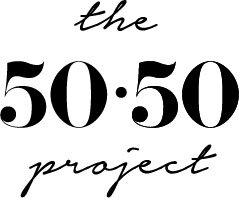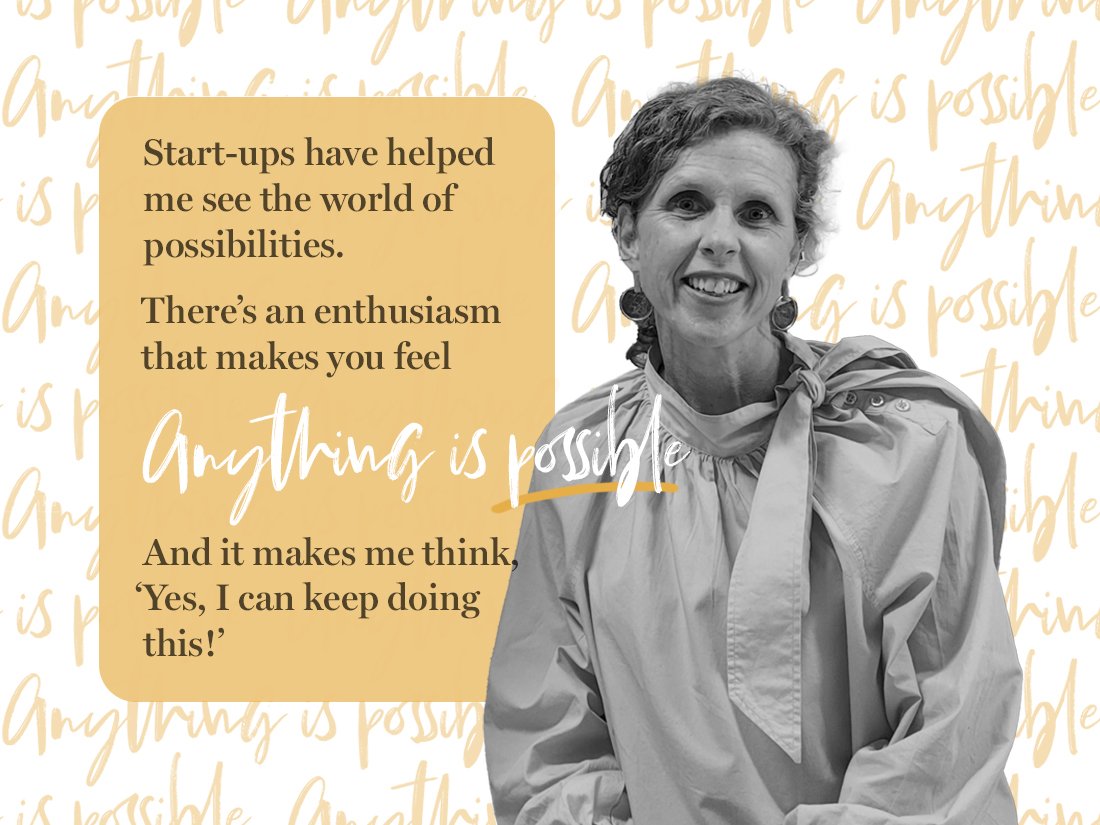Coffee with Daye CEO, Lisa Rodwell
Lisa Rodwell
Ceo Daye
Age: 53
Zoom coffee
How I met Lisa
I met Lisa 13 years ago through a mutual friend. At the time I had just bought a stationery design and print company and Lisa was helping Moo.com become one of the UK’s most successful start-ups, in the process making great design and quality printing available to the masses.
Ever since, I’ve been fascinated by (and a little envious) of Lisa’s career. She always seems to be a little ahead of the curve - from the early days of online marketplaces (Ebay) to sustainable fashion (Wool and The Gang), FinTech (Nutmeg, Starling Bank) and now FemTech.
These days Lisa is using her considerable experience and talent to raise the standards of women’s health at Daye, a company committed to creating effective products and services that overcome the historical gender biases in medical research and product innovation.
Describe your career path in two or three sentences including any twist or turns ending with where you are now.
I think of my career in three chunks. The first chunk is working for traditional, big corporate, mostly US based businesses. I started off as a financial analyst at Procter and Gamble after graduating from Queens commerce. This was very much the expected route – the kind of job you get through campus recruiting. Once I started, I quickly realised that I didn't want to be working on a spreadsheet for 10 hours a day.
Then a friend encouraged me to consider advertising and for the next eight or nine years, that’s what I did - I worked in advertising, direct marketing and interactive media, again, mostly on big, American accounts. Advertising gave me the opportunity to work internationally - something that I wanted to do since I was young. And so at age 30 I found myself in Prague, starting a direct marketing agency for Ogilvy.
I then came to the UK with Ogilvy. This was during the first dot com boom and I was super excited about technology and what it could do. You know, everybody was starting a dotcom. And then everybody's dotcom died but being agency side I was somewhat protected from the fall out.
The second chunk of my career was spent working in what I call the ‘Internet pioneers’. I started a role at eBay in the very early days. It was a really exciting time to be there – not only because the whole concept of democratised commerce but also because it was one of only businesses that was actually making money at the time. Then I moved to Yahoo. And between Ebay and Yahoo, I spent seven years working for these large, international, publicly traded internet companies.
And then the third part of my career has been working in startups. This is around 2007. During this start-up phase (which I am still in), I've worked in everything from online printing (Moo) to online crafts (Wool and the Gang), FinTech (Starling Bank and Nutmeg) and more recently I’ve moved into D2C businesses (Swift, Pact Coffee) and healthcare (Vira Health and Daye). All of the businesses have been consumer and growth focused – that’s sort of my sweet spot.
In the last year or two, I’ve been refining what the next part of my career might look like. In 2020, I started working with a woman's health business, called Stella – a menopause app. Now, I work alongside the Founder of Daye, a women’s health brand, as their CEO. I ‘m very excited about women's health, or more specifically, I’m very excited about putting all of my experience - the skills that I've collected and the network I’ve built - into something that I could be super proud of. It’s exciting to find a job where I feel I can make a big difference.
What decision or experience proved to be the most helpful to your career?
There's been a couple points that were useful. Quite early, I knew that I had to listen to both my brain and my heart and this made me realise that although I was a very good financial analyst role, it was not something that I got a lot of pleasure or reward from. I knew if I continued in this role it would always feel like just a job.
And the other thing I realized was the importance of culture and cultural fit. There have been a few times in my career that I've been in companies and thought this is not a place I want to spend time in. Either I don't really like the people or I don’t like the politics of the organization and I’ve made the decision to leave, sometimes without another job to go to.
Leaving without a job to go to would be more difficult to do now, even with all my experience. As an older woman, I’m not in demand. It is important to be frank about that. I remember my mentor telling me that after 50 you will find it very difficult to find a traditional job.
Finally, I think there’s something around integrity. There's been a few instances where I haven't stood up for my beliefs, and then I've always come to regret it and feel that I did something wrong by not doing so. As I've gotten older, I’ve listened to those inner voices more.
What advice would you give your 20 year old self knowing what you do what you know, now?
I think I would run my whole career differently. If I was getting out of university today, I would tell myself to go start that company. It's easier to make those big shifts early on, then when you’re older. You have less to lose, you don't have a mortgage, you don't have kids going to school (not that I have any, but most women do).
And then the other thing, I would say to my younger self is to think about if university is the right route. I’m not sure university is the right route for everyone - there might be other options worth exploring.
Has your definition of success changed?
When I was younger, success was very much about title and getting to the next level. I didn't necessarily have the ambitions of being a CEO or a CMO but I always wanted the next promotion.
For me now, success is more about the success of the business that I work on. And doing it in an authentic (I hate that word) way – i.e. doing it in a way that feels consistent with my values and knowing I haven’t compromised people. That's what's more important to me. I'm not driven solely by money. Otherwise, I would not work in startups, I would have remained in finance.
Do you think working in start-ups have given your career more longevity?
As I was looking for startup roles in the last couple years, I found it more difficult - even though I have a ton of experience, part of the startup ecosystem is made up of super young teams and they look at someone older and think she or he doesn't know what they're talking about or they're too expensive.
And if you haven’t worked in the start-up space before and want to enter it now in your 50s, I think that would be very difficult .
What I think start-ups have done for me is help me see the world of possibilities - there's so many ideas out there. You're constantly hearing about all the new companies starting up and I think that this enthusiasm makes you feel anything is possible. And think, yes, I can keep doing this.
Where or to whom do you look for inspiration?
I’m part of this wonderful group - a network called WITSEND. It stands for Women In Technology Supporting Execs and Non Directors. It was started by Claire Davenport (CEO of Not On The High Street) who wanted to bring together women in senior tech roles to support each through similar challenges. The point of the group is you can ask anything and get amazing, helpful feedback.
And, watching the careers of the WITSEND founders’ is super inspirational – they keep me going forward. They have such large ambitions and make me think I should be doing that.
If you're feeling stuck or uninspired, other actions you take or questions that you ask yourself.
I ask others… I need to talk it out. Sometimes I’ll go to my partner and he’ll start giving advice and I have to say No, I don't need you to do that, I just need you to listen.
In the last five years, what new belief, behaviour or habit has most improved your working life? Or your approach to creating your 50+ work life?
I don't know whether it's my working life or not but the only thing that's massively changed with me in the last five years is I found an equilibrium with exercise. I’ve always said I don’t want to exercise but two years ago, I forced myself to do an online fitness class. It’s been a slow transition – I went from Oh, I hate yoga to loving yoga. Now, I wake up and instead of starting my day with emails, I do 20 or 40 minutes of yoga. And it’s a new routine that has changed the way I work.
The other thing that's changed is I've taken sleep a bit more seriously. I always thought Oh, I only need five or six hours sleep. Then I read ‘Why We Sleep’ by Matthew Walker which is an amazing book and I thought maybe I do need a few more hours asleep.
If you could put one quote or piece of advice on a big billboard for everyone over 50 to see, what would it be?
This is for any age and it is “Never say never”.
Last question. What book or podcast would you most recommend to someone thinking about designing their post 50 work life?
My favourite book, which is not necessarily aimed at the over 50s but is the one I always tell women to read is The XX Brain: The Groundbreaking Science Empowering Women to Prevent Dementia. It talks about our brains and how we can protect them and the earlier you start the better off you will be. Dr Lisa Mosconi, the author also has a 15-minute TED Talk so you could watch that instead. (will add links)
The other book that inspired me to focus my career on something that was beneficial to women was Invisible Women: Exposing Data Bias in a World Designed for Men by Caroline Criado Perez. The author brings together a huge range of case studies, stories and research from around the world that reveals the hidden ways in which women are forgotten in design. It shows the impact this has on their finances, health and well-being.
And I also love The Guilty Feminist podcast because she (Deborah Frances-White) is funny and I relate to the idea of a guilty feminist.

